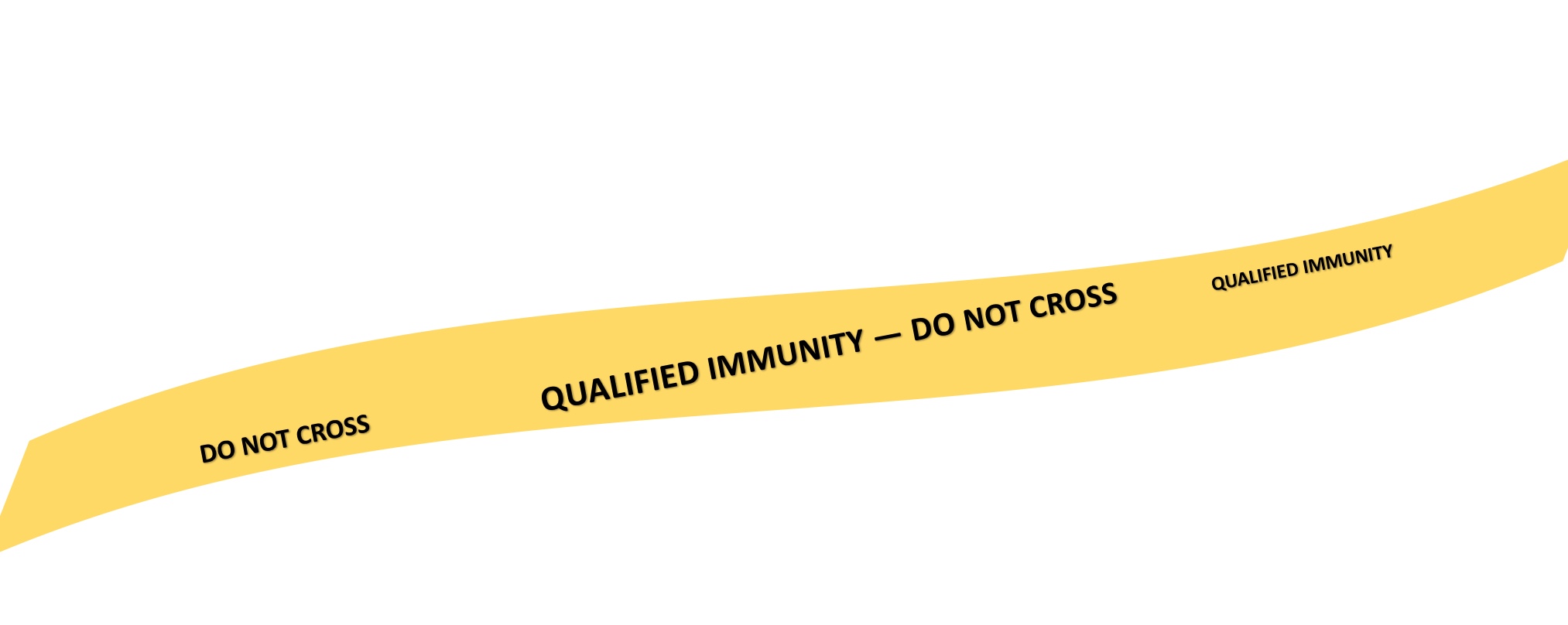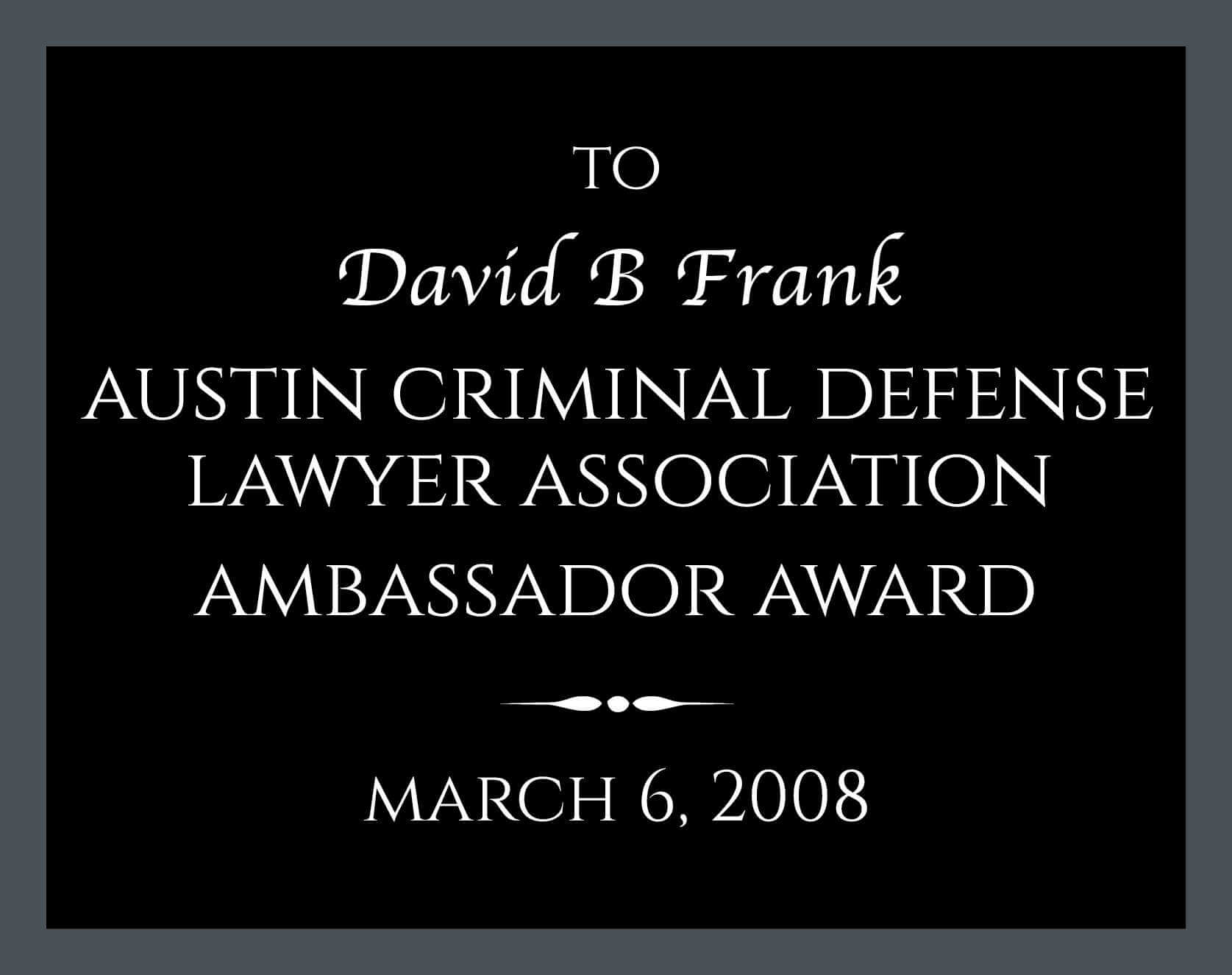
When you are acquitted or you have your charges dismissed, a natural question often follows: “can we sue the police for the wrongful arrest”? What the police did was wrong and should not be tolerated. In fact, it is sometimes an officer’s own misconduct that helps convince a prosecutor to dismiss the charges. However, winning damages against a police officer is an entirely different matter. The police currently enjoy immunity from prosecution under the doctrine of “Qualified Immunity.” To win a lawsuit against the police an arrestee must show that the officer was “plainly incompetent” or that the officer “knowingly violated the law”. I have provided an excerpt from a case that summarizes the defense of Qualified Immunity:
In Gibson v. Rich, 44 F.3d 274, 277 (5th Cir.1995), the court reviewed official qualified immunity under federal law, and made the following observations in the context of an illegal arrest claim:
Qualified immunity shields government officials performing discretionary functions from liability unless their conduct violates clearly established statutory or constitutional rights of which a reasonable person would have known. Babb v. Dorman, 33 F.3d 472, 477 (5th Cir.1994). The protection afforded by the defense is an “immunity from suit, not simply immunity from liability.” Id. (quoting Geter v. Fortenberry, 849 F.2d 1550, 1552 (5th Cir.1988)). Consequently, the immunity issue must be resolved at the earliest possible stage of the litigation since it entails an entitlement to immunity from suit and not merely a defense to liability. See Hunter v. Bryant, 502 U.S. 224, 226, 112 S.Ct. 534, 536, 116 L.Ed.2d 589 (1991).
In suits alleging illegal arrest, the qualified immunity determination turns on whether a reasonable officer could have believed the arrest to be lawful, in light of clearly established law and the information the officer possessed. Babb, 33 F.3d at 477. Even law enforcement officials who reasonably, but mistakenly, conclude that probable cause is present are entitled to immunity. Anderson v. Creighton, 483 U.S. 635, 641, 107 S.Ct. 3034, 3039, 97 L.Ed.2d 523 (1987); Babb, 33 F.3d at 477. The qualified immunity defense “ ‘gives ample room for mistaken judgments’ by protecting ‘all but the plainly incompetent or those who knowingly violate the law.’ ” Hunter v. Bryant, 502 U.S. 224, 228, 112 S.Ct. 534, 537, 116 L.Ed.2d 589 (1991) (quoting Malley v. Briggs, 475 U.S. 335, 341, 106 S.Ct. 1092, 1096, 89 L.Ed.2d 271 (1986)). Thus, if officers of reasonable competence could disagree on whether or not there was probable cause to arrest a defendant, immunity should be recognized. Babb, 33 F.3d at 477.
Indeed, “the Constitution does not guarantee that only the guilty will be arrested. If it did, Section 1983 would provide a cause of action for every defendant acquitted.” Baker v. McCollan, 443 U.S. 137, 145, 99 S.Ct. 2689, 2695, 61 L.Ed.2d 433 (1979).
Lang v. City of Nacogdoches, 942 S.W.2d 752, 762–63 (Tex. App.—Tyler 1997, writ denied).
If a suit is brought, a civil judge would analyze the facts of the arrest considering the totality of the circumstances. The judge would assess whether at the time of the arrest a reasonable officer could have reasonably believed he had probable cause to make the arrest and whether the arrest “was lawful.”
The officer’s probable cause affidavit should provide the facts that support his belief that a crime occurred, was occurring, or was about to occur. Surprisingly, even if the officer’s belief was mistaken, a civil court may find that the officer nevertheless had legal authority to arrest. Separate from the arrest affidavit, the officer may provide additional facts that support his arrest decision. If a reasonably objective and competent police officer would agree with the officer’s arrest decision, a civil court would probably conclude that the arresting officer had probable cause to arrest and is, therefore, entitled to qualified immunity.
This standard is entirely too strict and encourages the police to make sloppy arrest decisions without consequences. They are further protected by insurance plans that indemnify officers when they are sued so that individual police officers rarely suffer the financial costs of their own negligence. The idea of qualified Immunity has come under serious fire and may weaken in the coming years
Austin Criminal Defense lawyer
David Frank has been an Austin Criminal Defense lawyer since 1993. He is Board Certified in Criminal Law by the Texas Board of Legal Specialization. An attorney who is Board Certified by the Texas Board of Legal Specialization in Criminal Law must have experience in the preparation and trial of serious criminal matters. The attorney must also have extensive knowledge of state and federal constitutional law, evidence, procedure and penal laws involved in the trial of these matters.



Leave a Reply